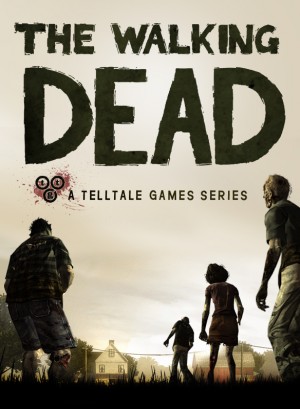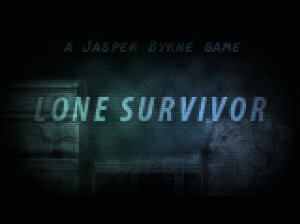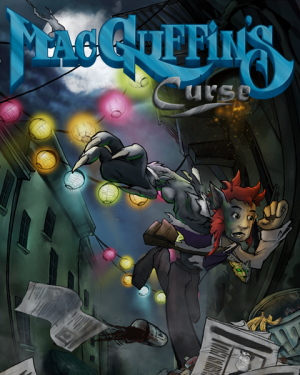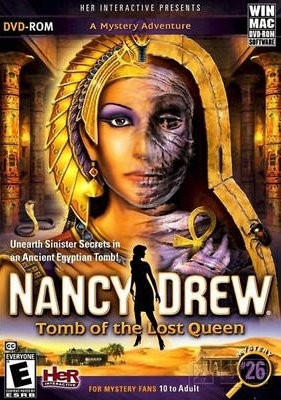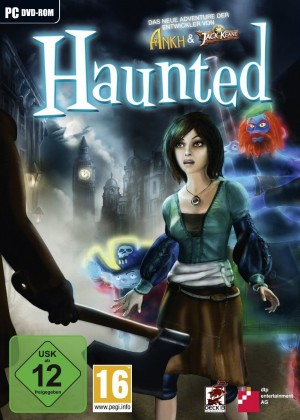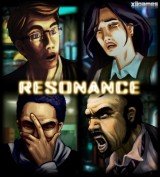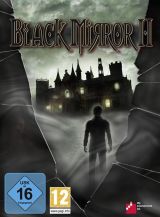Review for The Walking Dead: Episode One: A New Day
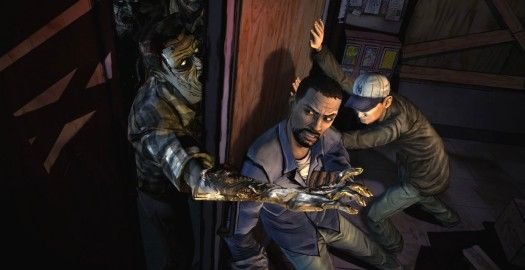
Telltale's adaptations of popular entertainment franchises have met with mixed results so far, and the decision to make a series based on Robert Kirkman's zombie comics met with more than its fair share of scepticism. Fortunately, those doubts have been proven unfounded in an emphatic way. While it's certainly not a traditional adventure by any means, The Walking Dead is Telltale in top form, delivering what I’d consider their greatest success to date. Off to a short but fantastic start with a compelling script, a strong cast of characters with engaging personalities and a sense of survival that leaves you wondering what’s around every corner, the debut episode, A New Day, manages to build up enough curiosity and anticipation that you'll be left eagerly awaiting the next instalment.
Though based in the same world as Kirkman's books, the game tells an entirely new story with mostly new survivors. Players control a very unconventional protagonist in Lee Everett, a former college professor recently convicted of murder, who initially finds himself being escorted to prison outside of Atlanta in a police car. With no further backstory to go on, you engage in conversation with the officer driving, getting a demonstration of the multi-choice dialogue options that direct every discussion you’ll have. You can choose to ignore the officer’s idle chat by staring out of the window or you can pry a little further into Lee’s history. Notifications will pop up (which can be disabled in the options) that indicate when a dialogue decision has impacted a character's opinion of you, which may affect their interaction with you later.
From huge to small, decisions you make alter the experience, ranging from gaining trust and building friendships (or increasing hostility and suspicion) to simply discovering more information about people – including Lee, whose shady past may not be quite as cut-and-dry as circumstances may appear. In extreme cases, your choices will ultimately impact the lives of others, requiring decisions to be made within seconds. Whilst it’s a formula that’s been done many times before, particularly in RPGs, this action-consequence approach feels refreshingly tangible in The Walking Dead, aided by the grave backdrop of fighting for survival. Telltale even claims that decisions made now will matter in future episodes, creating a real sense of an evolving, personalised story dependent on your actions.
In the midst of Lee's conversation with the policeman, one such split-second choice involves screaming in various ways to draw attention to a person standing in the middle of the motorway. But you're too late, and moments later the car is careening off the road, rolling down the bank. Having blacked out from the crash, Lee regains consciousness to find that he’s still trapped in the back of the car. A short distance away, at the other end of a smeared blood trail, lays the officer with his shotgun nearby. Dazed and confused, Lee must free himself from the car and his handcuffs. Soon after, all hell breaks loose.
Movement is controlled using the WASD keys or joypad analogue stick to guide Lee around freely, while the other stick or mouse is used to look around. Simple clicks or button-presses are used to interact with relevant elements in the environment denoted by a hotspot. Unfortunately, these hotspots are often quite fiddly due to a misalignment with the actual objects they represent. It’s not intuitive to look for a hotspot to the right of a character's head when trying to talk to them, although this aggravation can be somewhat alleviated by enabling the hotspots to always show via the game’s options.
Injured from the crash, Lee hobbles over to the seemingly dead officer sprawled on the ground, which is when he finally discovers what we already expect. Not so dead after all, the officer is actually amongst the undead, lunging at Lee and knocking him to the ground, resulting in a frantic backpedal to his nearby shotgun. It's either you or him at that point, one of whom will come to a gruesome, grisly end. Make no mistake: this isn’t the family-friendly Telltale adventure we’re accustomed to. There are scenes of intense gore and violence, very often in graphic, screwdriver-through-the-eye-socket detail.
Close encounters with zombies are often presented in the form of a Quick Time Event, typically requiring you to press a single key or click an interactive spot before time runs out. It’s possible to die upon failing such an event, but these sequences never feel overly challenging or demand quick reflexes to succeed, instead simply functioning to add tension and suspense at critical moments, and doing so effectively. Those concerned with the addition of QTEs in general can rest assured that their appearances are sparse, with typically large gaps between them, at least in the first episode.
While seeking shelter in a nearby house, Lee encounters a young girl named Clementine, left at home with a babysitter by parents gone on vacation. Choosing to accompany you, Clementine plays a pivotal role in the story, introducing several choices that will impact the story ahead. Do you tell her of the unlikeliness of her family returning? Do you admit you're a convicted killer when she inquires about your history? All such questions will affect the way she perceives you in future conversations. There are no right or wrong answers, only options, each with its own consequences that you can't necessarily predict ahead of time. Although the main storyline will play out the same way, anyone wishing to revisit the game will find plenty of replay value in choosing different dialogue options and making alternate critical decisions.
You’ll meet a varied cast of fellow survivors along the way, including Carley, a confident and composed news reporter who knows how to wield a gun, a family with a young boy about Clementine's age, and an ex-army commander named Larry, whose aggression coupled with his overwhelming drive to protect his adult daughter causes continual conflicts, at times even to his own physical detriment. Each character plays a vital role in the team dynamic, resulting in you feeling both dependent on others and responsible for ensuring their survival. Like any group of strangers thrust together in extraordinarily dangerous circumstances, some individuals in your party will accommodate and assist where possible, while others seemingly persist only to make survival ever more challenging, whether by needing to risk your life to acquire pills for Larry’s heart condition or forcing you to take sides in disputes about whether to kill a potentially infected companion or not.
Right from the start, Telltale has done a fantastic job of imbuing the main characters with compelling personalities. Each is portrayed with what feels like genuine emotion; they're vastly different individuals with their own pain, their own backgrounds, their own motivations (not all of which are known at this point, even for Lee), now reluctantly banded together in a fight for survival, needing each other but lacking in trust . A great example comes when Lee is uncomfortably questioned about his relationship with Clementine, followed by the little girl herself being questioned in front of you to back up your claims and counter any concerns that you're coercing her against her will. You'll feel a genuine desire to prove yourself and build trust in the individuals around you (at least I did; maybe you won't, and can respond accordingly if that's the case), and the game doesn’t sidestep such awkward and repulsive accusations.
It’s this tenuously balanced team dynamic and brief glimpses into interesting personal backstories that propel the story forward. Where the majority of zombie tales place the focus on fighting the undead, the real intrigue demonstrated here comes from the trials people face when confronted by horror and despair. By the close of the first episode, little is known about the cause of the apocalypse nor where the journey will take us, but already I feel a real affinity for the entire cast of characters in their desperate struggle to survive. This is far more valuable in making me want to come back to continue discovering more, even (or perhaps especially) knowing that no character is ever truly safe in The Walking Dead. Attachments now may very well mean heartache later, but I'm all in for the duration.
The only real goal here is a journey to find safety, which means traveling to various locations such as a farm that grants temporary shelter to a fortified drug store in Lee's hometown of Macon, with a dangerous side trip to a motel for fuel. Doing so means participating far more of an interactive movie than your traditional puzzle-heavy adventure. A New Day has very few puzzles, mainly involving exploring the environment to find an item to break a lock or keys to open a door. While some will surely lament the lack of challenge, largely limiting the puzzles to those that organically fit the story maintains the atmospheric immersion, a point further emphasized by the odd misplaced puzzle that feels forced in. One of the poorer examples has you helping an otherwise intelligent, competent individual struggling to work a radio without even checking if it has batteries.
The game’s art style is reminiscent of the series' comic roots, its 3D models having painted textures and rough edges. Although not done in black-and-white, this animated graphic novel-style will feel instantly familiar to Walking Dead fans. It’s a fantastic look that stands apart from the adventure crowd and allows for a surprisingly high level of detail. This is particularly evident in the character models, each of which is distinctively unique and wonderfully expressive, especially during conversations. There are some blemishes, however, such as poor lip syncing and noticeable frame drops during cutscenes.
There are also some problems with the sound quality, which can result in choppy dialogue, occasional popping and even clear differences in volume levels from one line to the next. This is a shame, as the voice acting itself is strong, with believable accents and solid acting all around. Lee is entirely believable as the strong, silent type, a clearly troubled soul who's most comfortable in his usually gruff reserve, but ready to aggressively engage or compassionately defend others when necessary. Clementine, on the other hand, beautifully portrays the innocence and (perhaps misguided) trust of childhood brilliantly, able to see the good in Lee and remarkably brave given the dire situation. Thankfully, the audio issues don't seem to plague the music, which is suitably sparse and subtle, remaining largely in the background but aiding the atmosphere at all the right moments of tension and action.
Overall, The Walking Dead is off to a fantastic start with an engaging survival premise and some of the best character building I’ve seen in an adventure game for some time. It's a little short in a single playthrough, even by episodic standards, but by the time the first episode comes to a close around the two-hour mark, you’ll be well and truly hooked by this horrific world, then left with a cliffhanger that’ll have you eagerly awaiting the next instalment. At the end you’ll be shown the key choices you made throughout the episode, along with the percentage of players who made the same decision. This is a nice touch to demonstrate the varied paths the story can take, and how in line with others your choices were. And if you don't like your decisions after the fact, or simply want to try out alternate paths, the game is easily good enough to play right through again from the start. This is Telltale like we've never seen them before, but they've created an adventure you can easily become invested in, and I personally cannot wait to see how the tale unfolds further next month.




